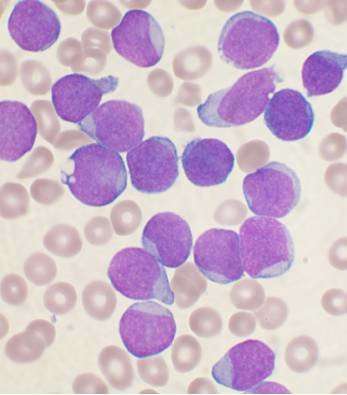May 27, 2021 report
Mice with T-cell acute lymphoblastic leukemia benefited from a targeted therapy

A team of researchers affiliated with multiple institutions in Germany and France has found that a subgroup of T-cell acute lymphoblastic leukemia (T-ALL) mouse models benefited from a targeted therapy. In their paper published in the journal Science Translational Medicine, the group describes their genetic study of T-ALL subgroups and experiments they conducted with mice after finding differences in methylation between subgroups.
T-ALL is a particularly aggressive form of blood cancer with low survival rates. It is also a type of cancer that has a high frequency of epigenetic processes that alter gene expression. In this new effort, the researchers looked at one type of altered gene expression due to T-ALL—methylation. Some types of T-ALL have been found to lead to hypermethylation while others lead to hypomethylation. To learn more about both, the researchers conducted a DNA analysis of methylation in 143 T-ALL patient samples. As part of their analysis, they broke down the samples into five subgroups based on their degree of methylation, running from hypomethylation to hypermethylation.
The researchers found that survival rates were lower for those in subgroups 1 and 5 than for 2, 3 and 4. Based on these findings, the researchers conducted experiments on test mice engineered to have a form of mouse T-ALL that had all five subgroups. They then gave all of the mice a DNMT inhibitor (5-azacytidine), which prior research has shown inhibits DNA methyltransferase. They found that the mice with higher levels of methylation saw improvements including longer life, delays in tumor expansion and experiencing fewer symptoms and less of a leukemic burden. They also found that mice with lower levels of methylation go worse after treatment—they died sooner and had higher peripheral blast counts.
The researchers suggest their findings indicate that different types of T-ALL based on methylation levels require different types of therapies and that some human patients could possibly benefit from the administration of DNMT inhibitors. They also note that more research is needed to confirm the therapeutic benefits of hypomethylating agents and testing methylation levels in leukemia patients.
More information: Aurore Touzart et al, Epigenetic analysis of patients with T-ALL identifies poor outcomes and a hypomethylating agent-responsive subgroup, Science Translational Medicine (2021). DOI: 10.1126/scitranslmed.abc4834
© 2021 Science X Network




















